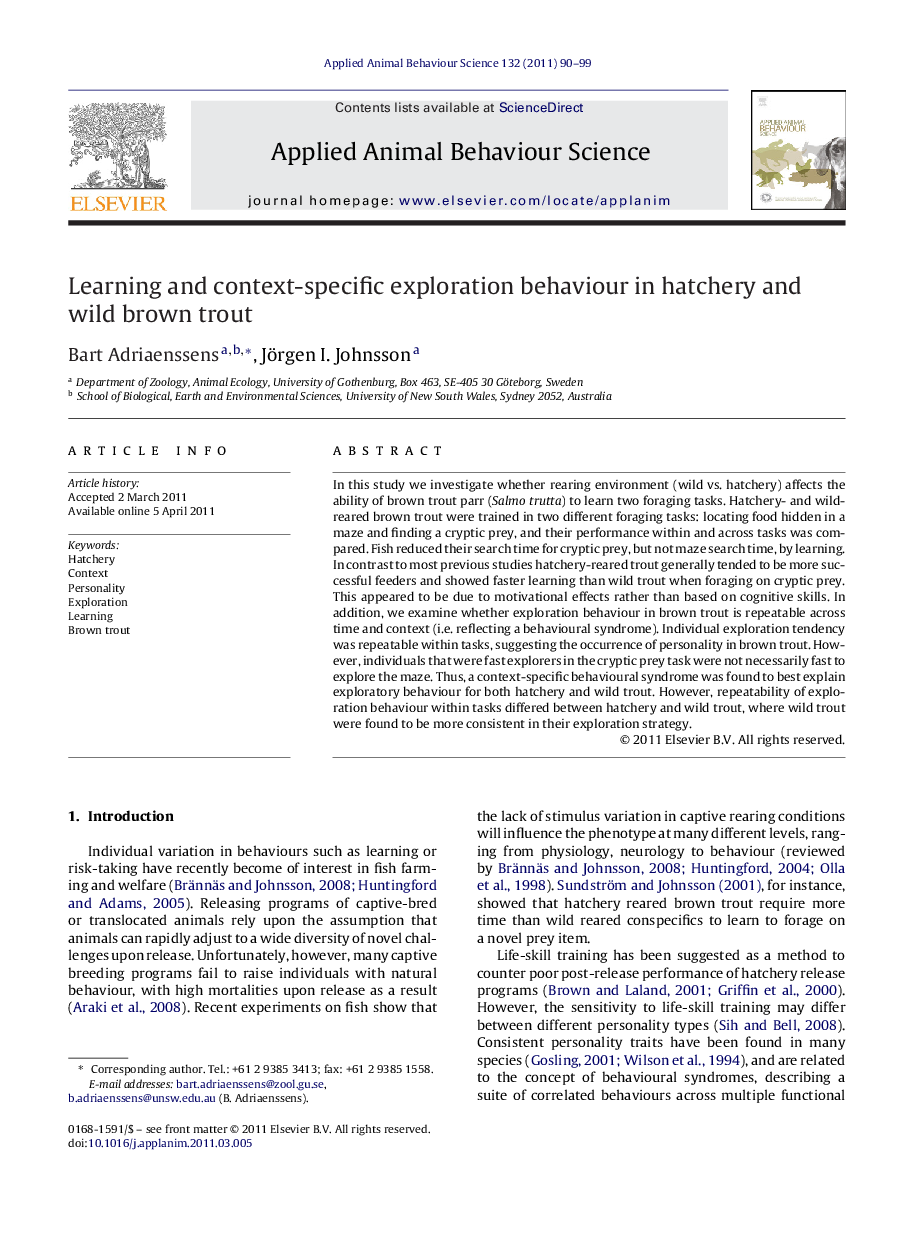| Article ID | Journal | Published Year | Pages | File Type |
|---|---|---|---|---|
| 4523111 | Applied Animal Behaviour Science | 2011 | 10 Pages |
In this study we investigate whether rearing environment (wild vs. hatchery) affects the ability of brown trout parr (Salmo trutta) to learn two foraging tasks. Hatchery- and wild-reared brown trout were trained in two different foraging tasks: locating food hidden in a maze and finding a cryptic prey, and their performance within and across tasks was compared. Fish reduced their search time for cryptic prey, but not maze search time, by learning. In contrast to most previous studies hatchery-reared trout generally tended to be more successful feeders and showed faster learning than wild trout when foraging on cryptic prey. This appeared to be due to motivational effects rather than based on cognitive skills. In addition, we examine whether exploration behaviour in brown trout is repeatable across time and context (i.e. reflecting a behavioural syndrome). Individual exploration tendency was repeatable within tasks, suggesting the occurrence of personality in brown trout. However, individuals that were fast explorers in the cryptic prey task were not necessarily fast to explore the maze. Thus, a context-specific behavioural syndrome was found to best explain exploratory behaviour for both hatchery and wild trout. However, repeatability of exploration behaviour within tasks differed between hatchery and wild trout, where wild trout were found to be more consistent in their exploration strategy.
